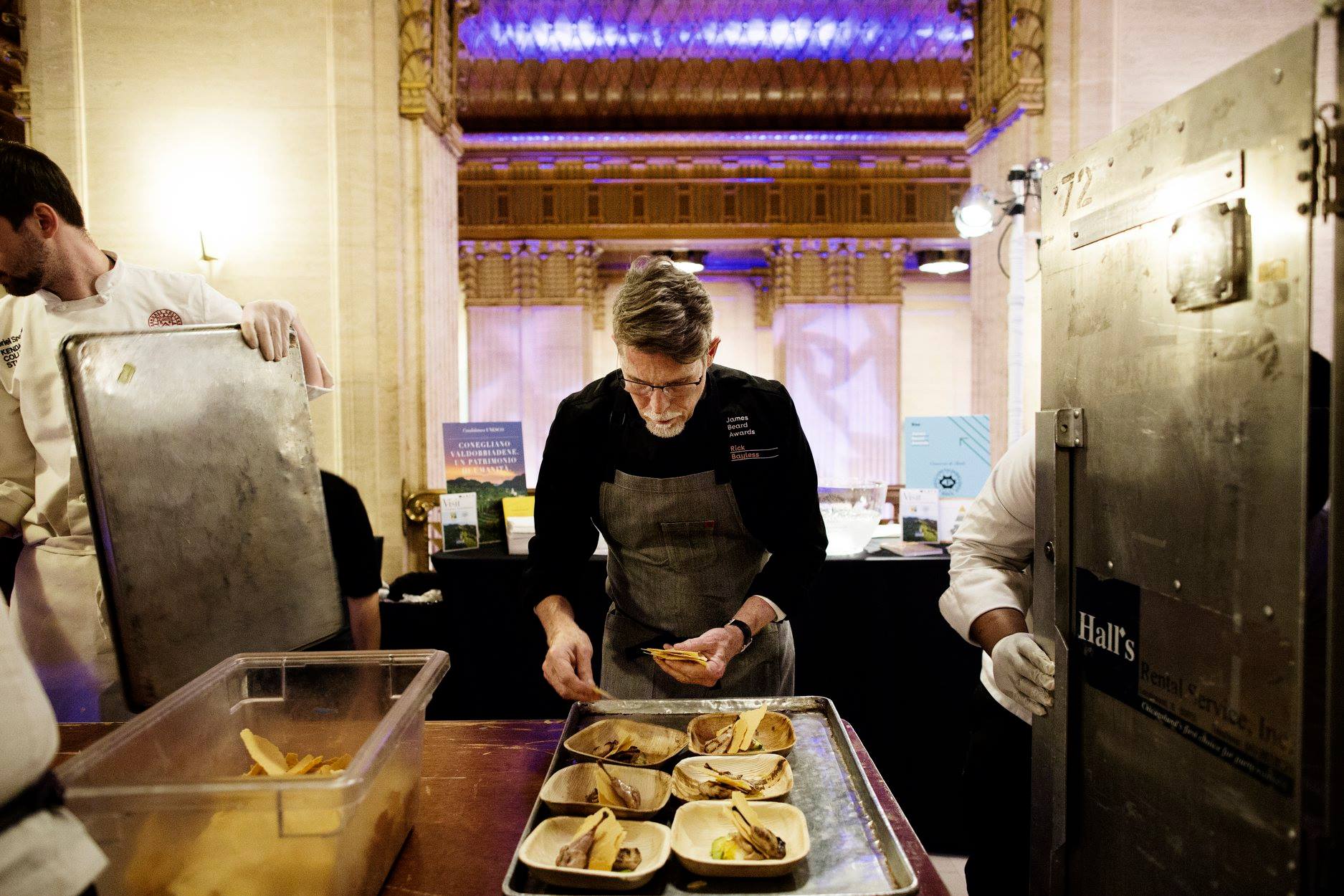Innovative Restaurateurs: Rick Bayless Is Still Stretching His Wings

Photo Caption: Chef Rick Bayless cooks at the 2018 James Beard Awards. Eliesa Johnson
Skift Take
After 32 years on the restaurant scene, you couldn’t blame Rick Bayless for kicking back. Instead, he’s rolling up his sleeves, minding each of his businesses — from airport locations to Chicago flagships — with care.


